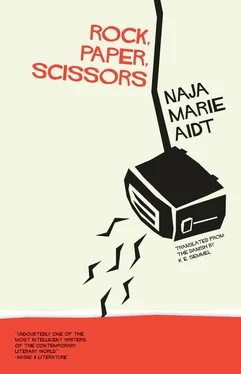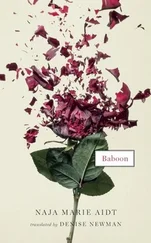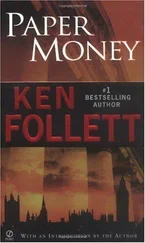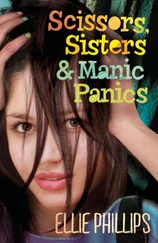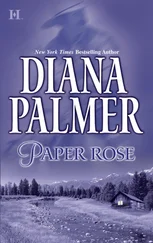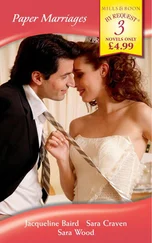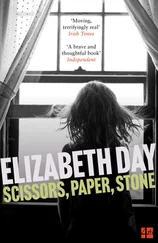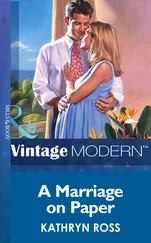It feels as though only a few minutes have passed before he hears the key in the door. Startled, he sits up. Patricia walks past the living room, bottles clink, water runs, something is plunked heavily on the table. He lies down again, closing his eyes. Wafting from the coffee table is the scent of oranges. Soon she enters the room carrying a bouquet of purple tulips in a vase, casual, relaxed, wearing a tight-fitting dress, her eyes are dark with makeup. She looks stately, mature, formidable. She sets the vase down on the low shelf, rearranges the flowers a bit, and then admires them. She stands stock-still, as if lost in thought. When he shifts slightly on the couch she turns, surprised. “Oh, you’re on the couch? I didn’t realize you were there.” Thomas takes a shower and gets dressed. Pulls a sweater over a white T-shirt. He slumps on the kitchen chair while Patricia prepares the fish and washes the lettuce. The radio plays pop music and commercials. They share a ham and mustard sandwich. Staring at him from the cornice is a dove. He runs his hand through his hair. Patricia sets the table in the living room and uncorks the wine. He promises to mix the drinks when the guests arrive. But he doesn’t want drinks. He gets to his feet, restless. “Is there anything I can do?” he asks. Patricia shakes her head. “Just sit down and relax.” Not long after that he removes his sweater, puts on a blue shirt, and thrusts his socked feet into a pair of black shoes. There’s still that crawling sensation under his skin, as if the rustle of the money has moved directly into his body; it’s unpleasant, a sweet tingling that makes him short of breath and hyper alert. His short nap has put the wheels in motion again, the swirl of his thoughts, the trembling, that feeling of the clear divide between himself and the room he’s in, hysterical joy, suddenly, but also a thick clump in his throat that he wishes he could spit out. The guests will be arriving any minute.
Back in the kitchen he pulls out the vodka and the cranberry-grapefruit juice. He removes some limes from the fruit drawer in the fridge. He prepares Sea Breezes. “But it’s not summer,” Patricia says. “Exactly,” he replies. The fish is in the oven, everything’s ready. Patricia pours him a glass of red wine, and it occurs to him that it’s been a long time since he had a smoke. Maybe he can get in a quick trip to the street before Tina and Jules arrive with their pampered tot. Patricia seems happier now. He kisses her neck (and hates himself for thinking: I’m kissing Patricia’s neck, it’s a gesture ); she squeezes his arm with one hand while removing her apron with the other. “I’m going to put some music on,” she says. “But not Schubert,” he says. “No, not Schubert,” she says, smiling and disappearing into the living room. On the street the wind continues to blow, but not as strongly. The darkness is charcoal-gray, dense. It’s drizzling. The humidity’s rising again. He leans against the wall, sucking smoke deep into his lungs. The sharp, bitter taste of tobacco fills his throat. A couple leaves the building on the opposite side of the street; they seem to be in love, clinging to each other, laughing. Jules’s car rolls up to him. “You standing there poisoning yourself?” Tina waves from the backseat. And then they begin to unpack, the kid and all the things that are, apparently, needed to take a toddler out for a few hours: some kind of device that can be put on a chair so that the kid can reach the table, a diaper bag, another with baby bottles, a little blanket, another bag, an apron made of oil cloth. Thomas tosses his cigarette butt into the gutter.
Up in the apartment, they toast and converse and chase down Stella, who’s drawn to the bathroom, though her mother won’t allow her in there because the “floor is slippery, you could fall and hurt yourself.” They sit at the table and the guests praise the fish. “It’s just right, not at all dry. I love the herbs you used. Is it marjoram? Chili? Ginger?” and the wine is nice, and the big white plates, the silverware—“Is it new?”—and Patricia’s good taste when it comes to furnishing the apartment. “It’s impossible to keep the place in order when you have a child in the house,” Tina says, almost apologetically. “We pick up all the time and still it doesn’t help.” And Jules adds: “Hell, we might as well let it stay messy.” But Tina doesn’t agree. “Then you’re just giving up.” Patricia nods and smiles and takes a sip of wine, while Thomas drains his sea breeze.
“We can never find anything. She’s got this compulsion to move things around. Recently it was the car keys. She can reach the top of the cabinet in the foyer now. .”
“Right,” Jules breaks in, “that’s where I usually put the keys.”
“Now he keeps them in his pocket,” Tina goes on. “But when I have to use the car and he’s not home, it’s a problem.”
“Why don’t you have a spare set?” Patricia asks.
“That’s a good question. We did, but we think Stella tossed them in the trash,” Tina chuckles.
“In the trash ?” Patricia says, shocked, giggling. “What a little scoundrel!” Thomas is truly bored. Jules grumbles off and on. Then Stella howls, alarmingly loud, and they all get to their feet and run in separate directions. “Where are you?” Tina shouts nervously, and of course Stella’s in the bathroom. She’s lying in the bathtub, her legs splayed along the sides of the tub, red-faced, screaming piercingly. Evidently she’d crawled up onto the edge and slipped in head-first. They console her and babble. Stella bawls heartrendingly on her mother’s lap and they all look only at her. Chubby red cheeks, bright shiny eyes, a sweep of curls and ears fine as tiny, rose-pink shells. They wipe away her tears — even the tears seem cleaner than an adult’s tears. A large bump has begun to form on her forehead. She rubs her eyes and suddenly stops howling. She’s caught sight of some candles on a low shelf, and decides she absolutely has to go investigate; her little body squirms and fidgets to get down. Tina lets go of her only to stand up immediately and follow her. “No, no, no. You’ll burn yourself. Hot. Stella will burn her fingers.” Then Patricia rushes in with ladles and plastic bowls and energetically shows her how she can drum on the bowls. “Music!” Instantly and eagerly Stella’s absorbed in a new activity, but only for a moment. Thomas glances at Jules, who fills his wine glass to the rim and chugs it down greedily. “Great wine,” he mumbles. His eyebrows have grown bushier. He has gray hairs. But his eyes are the same, ice-blue and insistent. He’s a few years older than Thomas.
They eat fruit and drink coffee. Tina takes Stella into the bedroom to put her to bed. It takes a long time. Meanwhile Jules talks, not surprisingly about literature, his voice gravelly and sloshed. “The biggest problem at the moment must be this tendency to write autobiographies purporting to be novels. It bores me more than words can say.” Jules is an incarnate fan of the Big Story. How a younger man can be so conservative is beyond comprehension. He’s not really old-fashioned in any other way. For many years he was an editor at a large publishing house, but he lost his job when Stella was a baby, and now he earns his living teaching at a couple of universities. Is he bitter? Old fashioned? No, Thomas thinks, and observes Jules, now withdrawn, rubbing his nose. He stayed home with Stella when she was a baby, for seven months. It’s only when it comes to literature that he’s conservative. But is he? Or does he just not buy into all the fads? In the exact same way that he himself insists on selling paper in a virtually paperless era, even displaying his wares in the old dark cases? Does it make him conservative? Is he conservative? Jules has stopped rubbing his nose. Tina returns, blinking at the light, an almost victorious expression on her face. “She’s asleep!” It’s now 9:30. With a sigh, she sits.
Читать дальше
